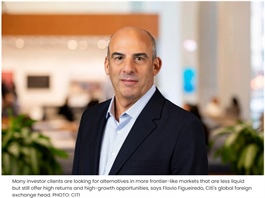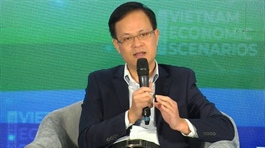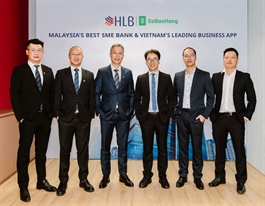AI a game changer for Vietnam’s banking industry
AI a game changer for Vietnam’s banking industry
AI is set to transform Vietnamese banking operations, from customer experience to fraud detection and operational efficiency.
|
According to Decision Lab’s latest Connected Consumer Report for Q2/2025 released on October 14, AI is continuing to be an increasingly integral part of life. As conversational tools like ChatGPT have become part of daily routines, Gen Z has continued exploring new platforms with curiosity, while older users have remained more selective in what they try. This has demonstrated how rapidly technology has been adopted, yet also how each generation has approached it differently.
With AI now connecting consumers and brands more directly, it has transformed how people discover, interact, and make decisions online. The banking industry is not immune to this trend.
KPMG’s Intelligent Banking report in June 2025 pointed out that AI is no longer just a futuristic concept in banking – it's already driving innovation in critical areas such as fraud detection, personalisation, and risk management. Leading global institutions are at the forefront, using AI to transform hundreds of AI use cases, from streamlining operations to offering hyper-personalised products and services.
Banks are actively exploring and refining strategies to deploy AI. Amid foundational and talent readiness challenges, the banking sector is cautiously yet innovatively adopting AI, employing diverse implementation strategies and integrating complementary technologies to transform key business functions.
In a podcast, Couchonomics with Arjun (Dubai), Nguyen Huu Quang, CEO of Cake Digital Bank, shared, “Vietnam’s traditional banks are increasingly investing in technology and AI to transform their digital banking platforms. A few traditional banks also set up the standalone digital banks targeting the younger and tech-savvy customers.”
To capitalise on this trend, Cake Digital Bank has positioned itself as Vietnam’s AI-first bank. With the mission to become a "Next GenAI Bank", Cake has integrated AI across all aspects of its operations, from front office to middle office and back office.
“To serve six million customers, we operate with just 300 employees – 40 per cent of whom are tech and AI engineers. In fact, around 70 to 80 per cent of our workforce consists of virtual agents supporting areas such as collections, risk management, customer service, and other operations,” Quang noted.
Cake’s virtual agents now handle the majority of tasks that previously required human staff. They are fast, consistent, and increasingly approaching human-level quality. Thus, its loan approval process takes less than two minutes – a unique selling point from traditional banks.
Furthermore, AI has been the driving force behind the digital bank’s rapid growth, enabling it to reach breakeven just three years after its launch in 2021. Cake has built trust through technology, staying close to its users and operating like a tech company, not a bank.
Within the next three years, Cake aims to leverage AI to be one of the most efficient digital banks in South Asia. It is building a Vietnamese large language model for banking to power smart customer service, collection, and personalised financial service – creating a banking experience that feels local, intelligent, and human.
Pham Anh Tuan, director-general of the State Bank of Vietnam (SBV)'s Payment Department, shared, “AI, along with big data and machine learning, has become foundational to banks and credit institutions to innovate products, optimise operations, and enhance risk management capabilities. In fact, several Vietnamese banks have adopted AI to analyse customer data, support the decision-making process, personalise services, and enhance transaction security.”
“AI is driving Vietnam’s banking industry towards an intelligent operating model, where processes are automated, decisions are data-driven, and services are tailored to individual needs. However, to harness the power of AI, it requires the synchronised efforts of the government, infrastructure, a high-quality workforce, and international partnerships. Looking ahead to 2030, AI will be not only a tool but also a key pillar in the digital ecosystem of Vietnam’s banking industry,” he added.
In the same vein, banking and finance expert Can Van Luc recommended, “Banks should develop AI strategies in association with comprehensive digital transformation, focusing on risk management, data analysis, and service personalisation. This is coupled with investment in IT infrastructure, cybersecurity, and talent development, especially AI experts.”
He emphasised that collaboration between banks and domestic and international technology and fintech companies will accelerate the adoption of AI and unlock the full potential towards a safer and more sustainable future.
As AI becomes integral to processes, banks also face increasing pressure to maintain transparency and trust, both internally and externally. Scaling AI without robust frameworks for accountability and explainability can lead to mistrust among employees, customers, and regulators.
In response, the SBV is formulating a national-level project on an AI governance framework for banks. The project has attracted the participation of multiple banks with a view to establishing a comprehensive governance system for AI applications across Vietnam’s banking industry.
- 11:09 16/10/2025


























